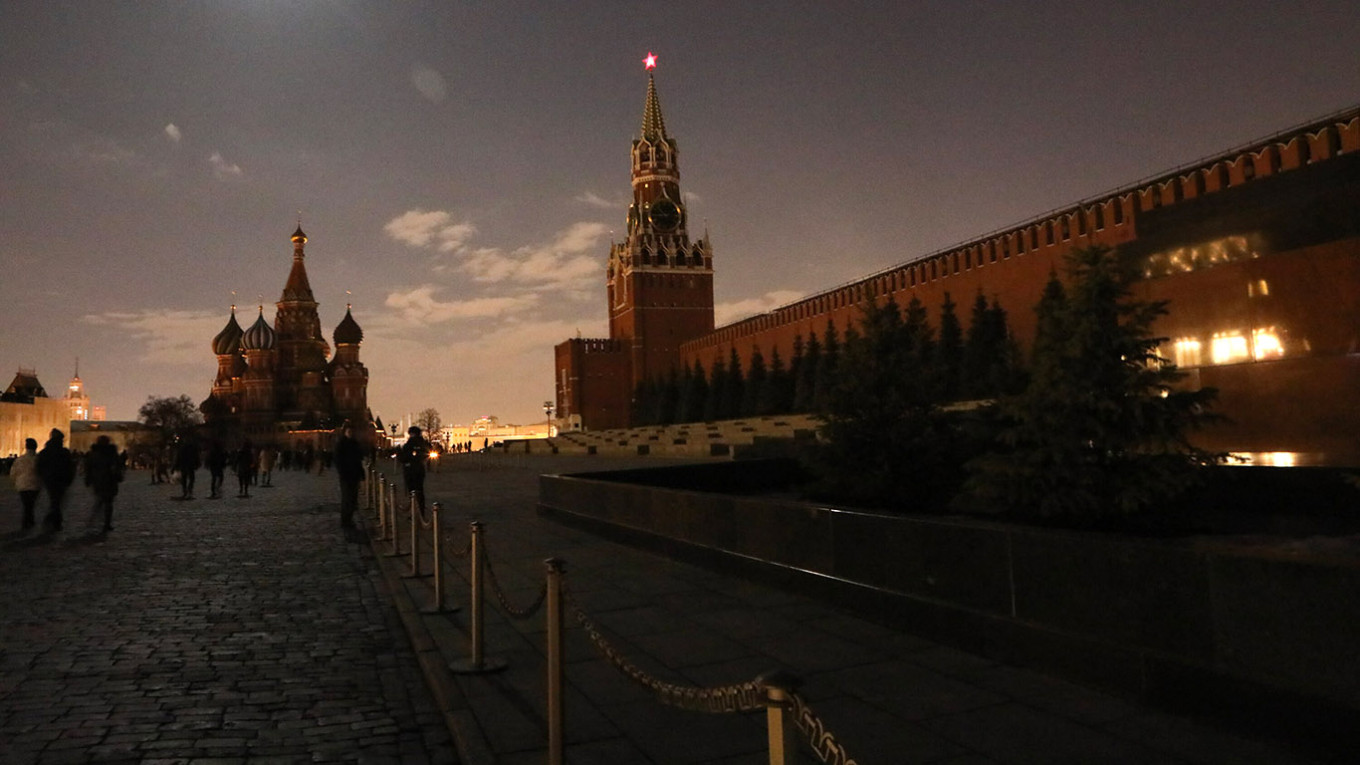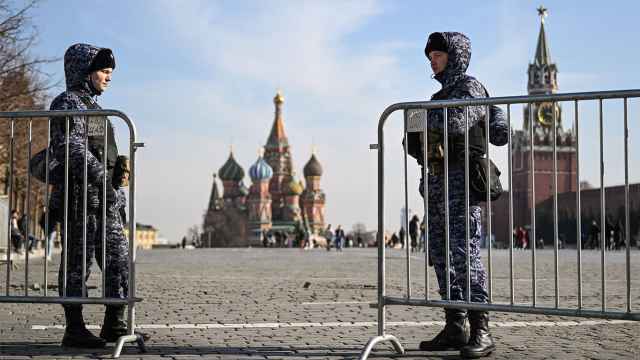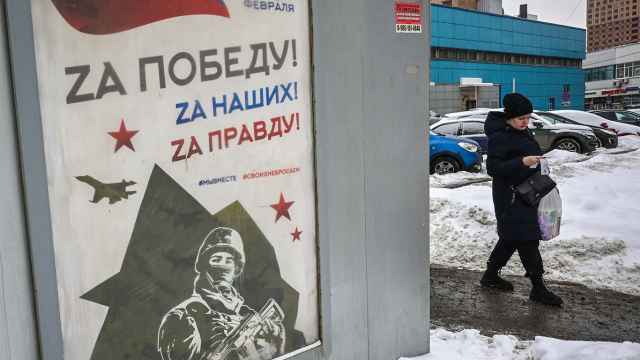Russia has posted its largest budget deficit in three years while depleting its rainy day fund by 57% since the start of the war.
However, analysts say the Kremlin still has enough resources to cannibalize the civilian economy to support its war spending, at least for 2025.
Where does Russia’s budget stand?
Russia posted a budget deficit of 3.49 trillion rubles ($34.4 billion) in 2024, a three-year high in nominal terms and an 8% increase over 2023. It was also the third year in a row in which Russia has run a deficit of over 3 trillion rubles.
Spending on defense and the military, which increased by more than 100% between 2021-2024, is now estimated to account for about 40% of all Russian federal spending.
This, combined with Russia's reluctance to make deep budget cuts to social and other programs, meant that the country's spending increased by 62% between 2021 and 2024.
What are the challenges?
Spending increases and persistent deficits have been eating through Russia’s reserves.
To cover the deficit and finance investment, Russia has tapped into the National Wealth Fund (NWF), a rainy day fund that Moscow filled with surplus oil and gas revenues during fat years.
The liquid part of the NWF, readily spendable investments (currency and gold), has been depleted by two-thirds over the three years of war.
In 2024 alone, Russia spent 24% of the NWF’s liquid holdings to cover its wartime spending needs.
In total, the liquid holdings shrank by 57% since the pre-war level of 2022 and now stand at the equivalent of 3.8 trillion rubles or 2.6% of the country’s GDP. For context, in 2021 liquid reserves were 7.2% of GDP.
According to analyst Anders Aslund, the Russian economy is “approaching its moment of truth” and said that “Russia’s last liquid reserves are likely to run out in the fall of 2025.”
“As the risk of a financial crash rises, Russia’s imperiled economy is about to pose serious constraints on Putin’s war,” Aslund noted.
In the same vein, some analysts say the Kremlin may look for ways to suspend the war with Ukraine this year as its financial reserves dwindle.
What do Russian analysts say?
Russian officials and analysts acknowledge the strains on its economy but do not foresee the depletion of its rainy day fund in 2025 without a massive external crisis.
According to the Central Bank, the depletion of the NWF could happen only in the event of a crisis triggered by the China-U.S. trade war and the ensuing global financial shock, which could lead to a decline in demand for oil and gas and thus to a sharp drop in Russia's energy revenues.
The NWF may be depleted if oil prices reach about $40 per barrel or lower, but this is unlikely, analyst Roman Semennikhin said in an interview with the Moscow-based RBC TV network.
“In general, the funds remaining in the liquid part of the NWF will be sufficient to finance only one full year of high budget expenditures. As a result, the government will have to drastically reduce spending by 2026 at the latest,” analyst Kirill Rodionov noted.
The NWF’s non-liquid assets are designed for long-term investments, such as strategic infrastructure projects or company shares, and are therefore not easily accessible.
What happens if Russian reserves dry out?
Even if Russia drains its rainy day fund, it will not face immediate issues in funding its war machine.
To begin with, Moscow still has room to raise taxes and cut spending.
Russia's non-oil and gas budget revenues are projected to grow by 18% in 2025, in part due to tax increases on individuals and corporations. Meanwhile, Russia’s highest tax rate, a modest 22%, is likely to increase further.
And while sanctions limit external demand for Russia's debt, there is room for Russia to borrow more domestically to meet its growing spending needs.
Russia's government debt stands at 26.7 trillion rubles, or 13.6% of GDP, so it can borrow from companies and individuals, for example by offering them high rates of return. In 2024 alone, Russia borrowed 4.37 trillion rubles by issuing debt on the domestic market.
If there is not enough demand for government debt, Russia can launch the so-called war bonds program or the Central Bank can print rubles to buy government bonds.
Of course, each of these tactics has flaws: more borrowing will exacerbate the problem of high inflation, while budget cuts will depress economic activity. But the current deficit is not yet large enough to warrant an acute fiscal crisis.
While Russia's deficit is growing in nominal terms, it does not yet exceed 2% of GDP.
Is Putin’s war spending under threat?
Absent a major crisis, Russia's deficits and depleting reserves are unlikely to pose a significant enough threat to make President Vladimir Putin reconsider his war aims, at least in the short term.
While it is true that Russia will struggle to maintain business as usual in the civilian economy if the war continues, the country still has enough resources to burn to keep pursuing its offensive.
Russia's war spending — estimated at between 6.2% and 9% — is high by historical standards, but moderate when compared to other countries at war or even the U.S.S.R.
It is also well below many other economies at war, including Ukraine — and on par with oil-rich Saudi Arabia, which spent around 9% of GDP on its military between 2001-2020, or what the U.S. spent in 1966-1975, according to economist Dmitry Nekrasov.
Things could change if the war escalates sharply or Russian energy revenues fall, but these are not yet a foregone conclusion.
Although the federal budget looks sustainable on paper, there are several risk factors, according to Alexander Kolyandr, a financial analyst and researcher for the Center for European Policy Analysis (CEPA).
He pointed to higher-than-planned spending on war-related procurement and some social spending, potentially lower energy revenues due to a global drop in demand, and lower-than-expected GDP growth as risk factors for the Russian budget.
However, the baseline scenario is still that Russia will have enough liquidity to cover the deficit by borrowing and the country will avoid a "fiscal implosion or severe spending cuts in 2025,” he said.
“The Russian economy is rolling on the mortgaged future, but it continues to do so at least in the short term,” Kolyandr told The Moscow Times.
Putin may be able to "manage the economic fallout of his war in the short term," while the country's businesses can survive another "year of double-digit interest rates on loans" at the cost of cutting investment, economic analyst Alexandra Prokopenko wrote in Foreign Affairs.
“If Western capitals cannot bank on the imminent collapse of the Russian economy, they must face the reality that Russia will pose an immense challenge for the next year or more,” Prokopenko said.
A Message from The Moscow Times:
Dear readers,
We are facing unprecedented challenges. Russia's Prosecutor General's Office has designated The Moscow Times as an "undesirable" organization, criminalizing our work and putting our staff at risk of prosecution. This follows our earlier unjust labeling as a "foreign agent."
These actions are direct attempts to silence independent journalism in Russia. The authorities claim our work "discredits the decisions of the Russian leadership." We see things differently: we strive to provide accurate, unbiased reporting on Russia.
We, the journalists of The Moscow Times, refuse to be silenced. But to continue our work, we need your help.
Your support, no matter how small, makes a world of difference. If you can, please support us monthly starting from just $2. It's quick to set up, and every contribution makes a significant impact.
By supporting The Moscow Times, you're defending open, independent journalism in the face of repression. Thank you for standing with us.
Remind me later.







